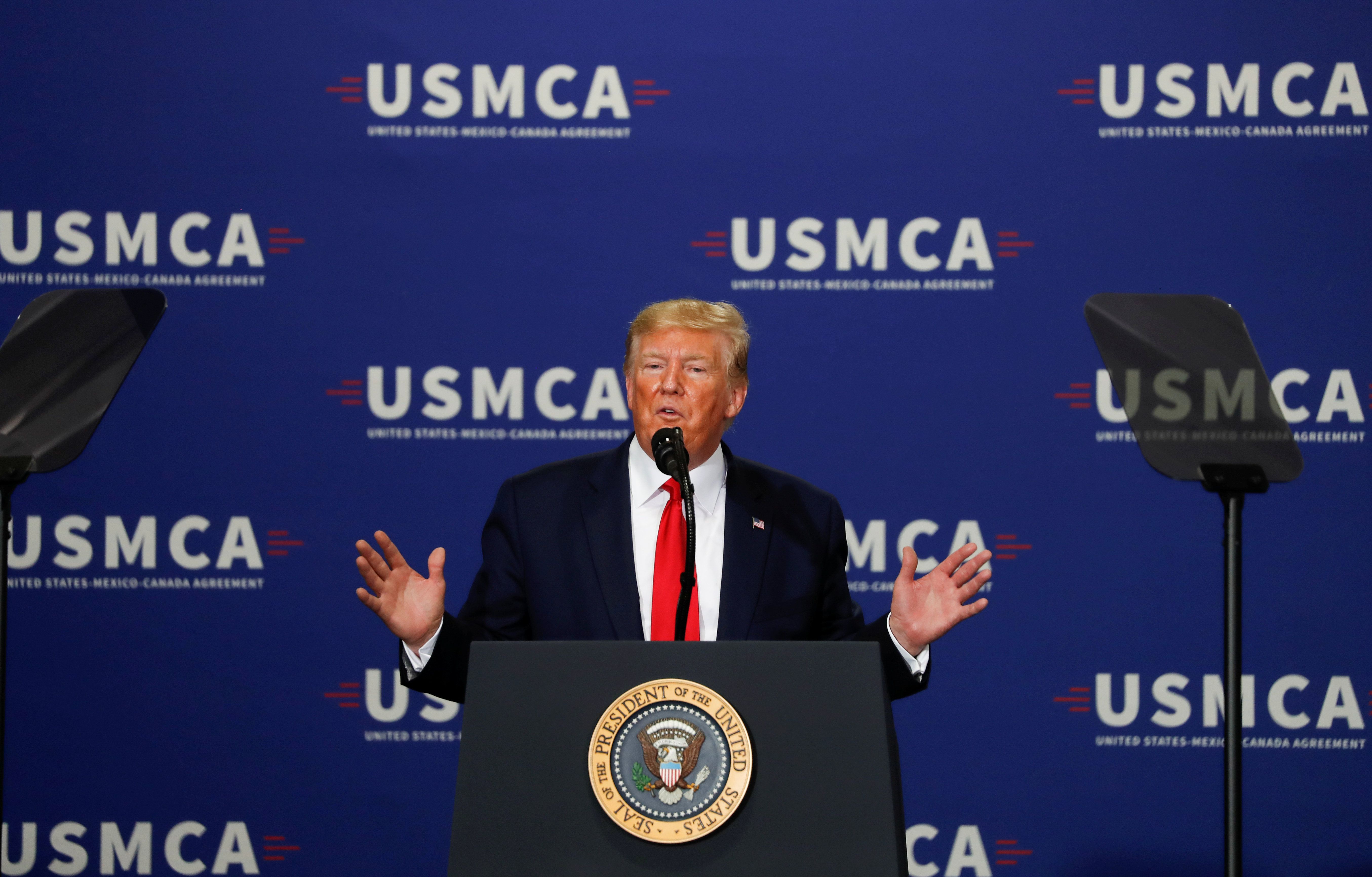Trump gets his deal – House Speaker Nancy Pelosi announced yesterday that Democrats will back the USMCA, the US-Mexico-Canada trade agreement that will replace the North American Free Trade Agreement. Crucially, the bill will also have support from the nation's largest labor union. This is a major political victory for President Trump, who promised he would close this deal, but it's also good for Pelosi: it shows that the Democrats' House majority can still accomplish big things even as it impeaches the president. But with the speed of the Washington news cycle these days, we're watching to see if anyone is still talking about USMCA three days after it's signed.
The end of martial law in the southern Philippines – More than two years after imposing martial law in Mindanao – the Philippines' second largest island and home to more than 90 percent of the country's more than 5 million Muslims – President Rodrigo Duterte will now lift the restrictions by year-end. The measure was originally imposed in response to the seizure by Islamic State rebels of parts of the southern city of Marawim in 2017, but rights groups criticized it as evidence of Duterte's authoritarian instincts. The Philippines' government now says the clout of armed groups in the region has diminished, but the influence of ISIS in Southeast Asia more broadly has grown in recent months, with Mindanao itself hit by a number of deadly suicide bombings.
Anguish and election in the UK – Tomorrow, voters will decide whether Prime Minister Boris Johnson's Conservatives will get the parliamentary majority he needs in order to push through his Brexit plan. After three years of Brexit anguish, Johnson's "Get Brexit Done" platform appears to be resonating with working class and rural voters who see Brexit as a way to revive British industry and limit immigration. His chief rival, Labour leader Jeremy Corbyn, is trying to talk past Brexit – which many working class Labour voters now support – toward issues of social justice and economic inequality that can also attract urban and younger voters. The fiercely anti-Brexit Liberal Democrats, for their part, are just hoping to win enough seats to deny Johnson a majority. The latest polls show Johnson with a 10 point lead over Corbyn. Oddly, the latest electoral map appears to shows cartoon character Homer Simpson in a muumuu.
What We're Reading
How China pitched Italy rightwards – The migrant crisis of 2015-2016 may have contributed to the recent explosion of rightwing parties across Europe but, at least in Italy, the fuse was lit decades ago when Chinese competitors began to hollow out the country's industrial heartlands. Though Chinese immigrants have contributed a lot to the economy since then, the far-right, anti-immigrant Lega party still has a large number of formerly left-wing, working class voters in these regions. A fascinating long read from the New York Timeshere.
